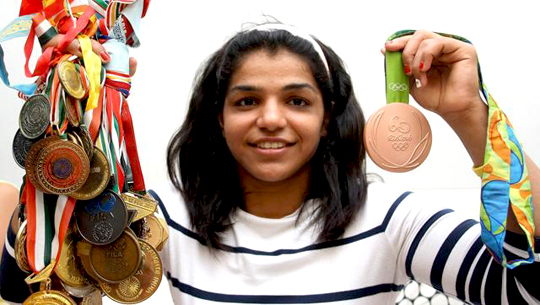New Delhi, Aug 29: Wrestler Sakshi Malik, who bagged a bronze in women's freestyle 58 kg class in Rio Olympics, may soon marry a fellow grappler this year, as per a media report.

According to, Bengali Daily Anandabazar Patrika, the name of her future husband is a 'secret'.
Malik was quoted by the Daily as saying that the marriage will not interfere with her preparations for the next Olympics in Tokyo.
The 23-year-old wrestler also quoted as saying that the person she was going to marry was 'very supportive' and thinks that her dreams were his dreams.
"I will gain a friend after marriage. He will help me in my preparations,” she told the media house.
Malik became first woman wrestler from India to win an Olympic medal after she pulled off a sensational 8-5 victory over Aisuluu Tynybekova in the play-off bout.
She also became only the fourth Indian grappler to win a medal in the Olympics. Before her Khashaba Dadasaheb Jadhav, two-time Olympic medallist Sushil Kumar and Yogeshwar Dutt had won medals for India.
Malik carried the Indian flag at the closing ceremony of Rio Olympics.
Earlier, the 23-year old, who hails from Rohtak, returned to a rousing reception in the national capital on August 24 after she arrived from Rio de Janeiro. It was followed by another grand welcome by the Haryana government.





Comments
Add new comment